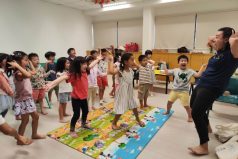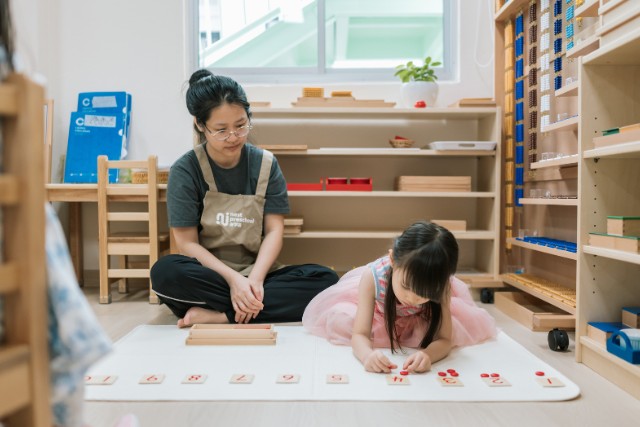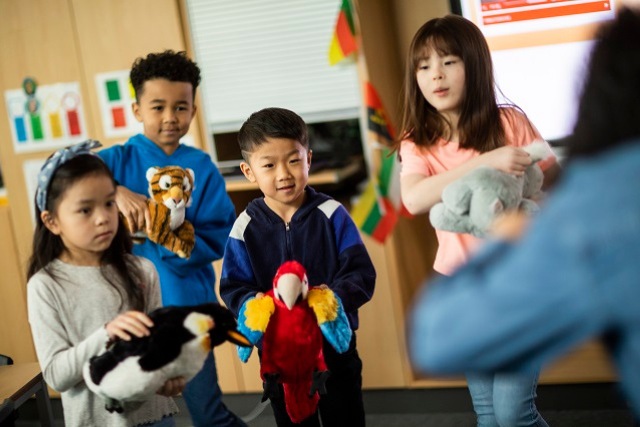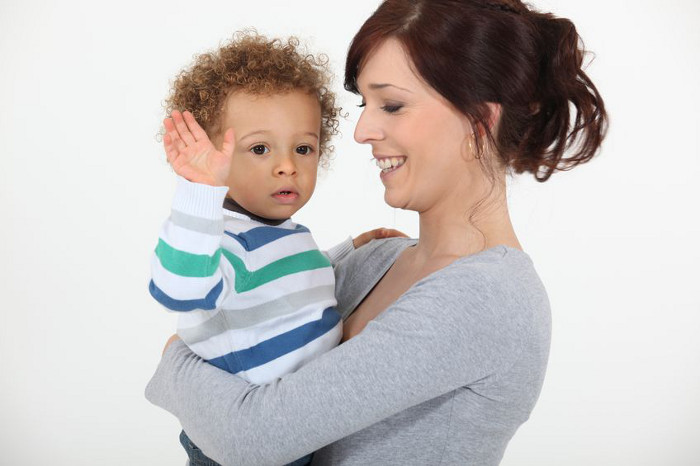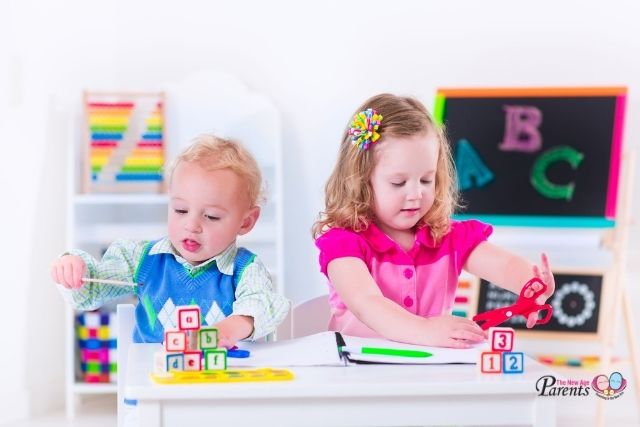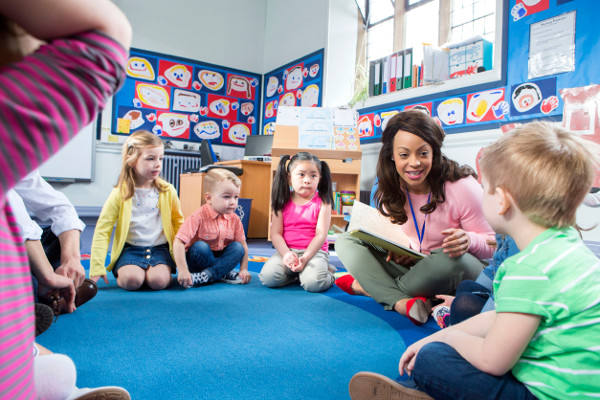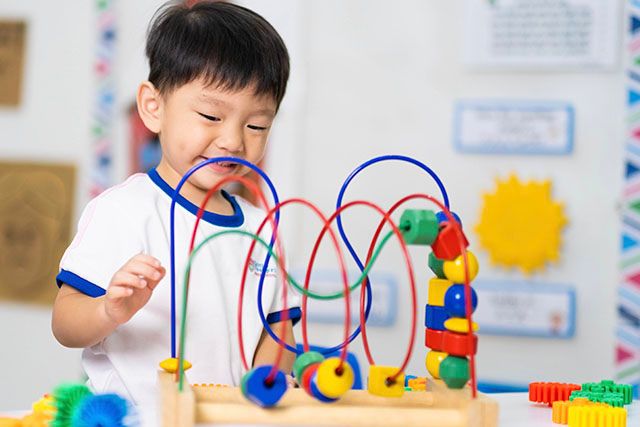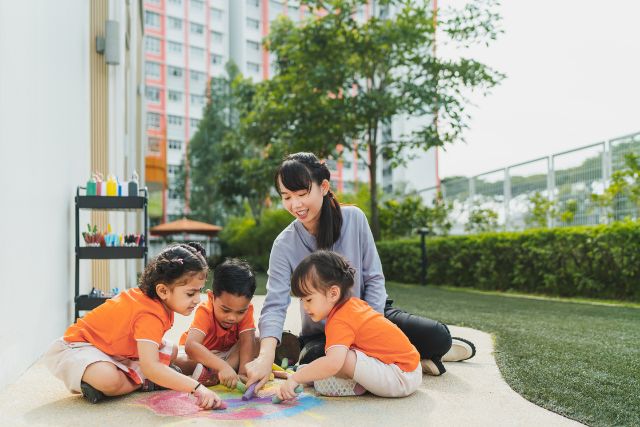When Sam was the only child, I could invest all my time on him. Now with a second child, I find that my time with him is limited. As a stay-home-mom, I had the privilege of planning his play and learning time so that he can be meaningfully occupied while he is at home with me. There used to be a schedule where I will include time for reading, music, singing and art and crafts. As Sam grew older, his learning capacity also grew substantially.
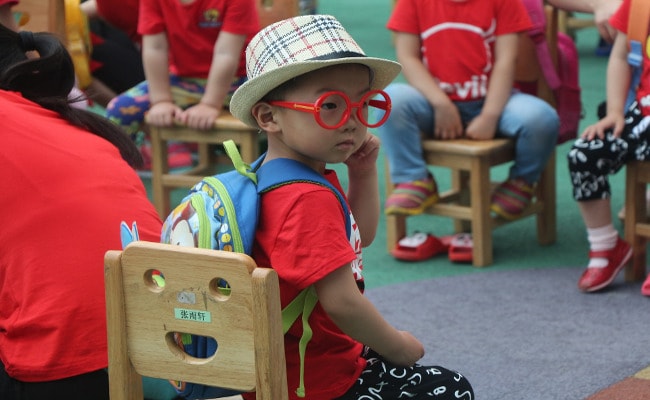
According to research, a child’s learning capacity for language especially, peaks between 8 months to 3 years old.
“Even though other abilities are not dictated strictly by the critical period phenomenon, an area like language development does have peaks and plateaus. Between the ages of 8 months and 3 years, a child’s language comprehension and strategies become more sophisticated. For example, an 8-month-old understands a few single words and will look at an object when directed verbally, whereas a 3-year-old understands a 3-word sentence. With respect to expressive vocabulary, in spite of individual variation, a 3-year-old has a vocabulary of approximately 900 words, a threefold increase from the amount at age 2.” (Steinberg)
Indeed, at about 15 months old, I suddenly noticed a tremendous growth spurt in Sam’s learning and language skills. But as I was heavily pregnant with my second child, my energy level was depleting. I knew then, that I wasn’t going to be able to keep up with his spurt. Also, I didn’t want to ‘waste’ his spurting and eagerness to learn. After much thought, we decided to put Sam into a two hour playgroup when he turned 18 months old. In this way, he can continue to play, have fun and learn with other children. This will also help free up some time as I rest and spend time with my second born, Shanae.
Another mummy friend of mine, Sharon also placed her daughter Sera at a school when she was 20 months old. Sharon recalled that she was very excited for Sera when she started school as she knew that Sera can get her dose of interactions with peers of her age and to spend her time more meaningfully than going to market with Sharon or watching the television at home.
Concerns and Fears
Sharon remembered being worried that Sera would not be able to adjust to school and would be clingy. But Sera surprised her on the first day of school with her willingness to attend school and there were no tears! Sharon recalled what happened that first day of school, “I just dropped her at school, told her ‘Mommy loves you, and grandma will pick you up after lunch okay?’ and I waved goodbye. Sera nodded and walked into the classroom without even looking back at me! I think she was very happy to play in school, where she can interact with all her friends.” Although Sharon was proud of Sera’s independence, she felt a little sad that her firstborn does seem to prefer school than being at home. Nevertheless, she shared that she was still thankful that Sera likes school and transited fairly well.
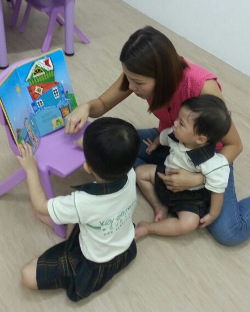
Sharon’s experience was a vast difference in comparison to mine.
Many parents advised me that I would need to ‘train’ Sam and give him some time to adjust to his new school and being apart from me. Looking back, I think I needed to be ‘trained’ to adjust the time without him at home more than he needed to be! After all, we have not stayed apart for more than two hours. Even when we did stay apart, my mom was around to care for him – yet even with my mom around he would wail as long as I was away. Yes, he was that clingy! My heart broke just thinking about how long he would wail in school. Will he be insecure with himself? Will he think that mommy doesn’t love him anymore? Will he think that mommy has abandoned him at the school?
It was quite amusing looking back at the experience I had – Yes, we both cried. I cried! Sam wailed in school (on and off) for as long as two hours for about 2 weeks. I cried too while hearing him calling out to me as I walk out of the school. I had separation anxieties and many worries to start with. I was worried that Sam will have difficulties adjusting to time away from me, that his teachers will not be able to understand his needs. I was concerned if the teachers were genuinely caring and emotionally connecting, and if they would take his allergic condition seriously and ensure that he would not be fed with the food that he is allergic to.
Advice to Mothers
Know that you and your child will need some time to adjust emotionally and physically as he attends school. The pain is ultimately short-termed, but it would achieve your long-term goal in wanting your child to feel comfortable to learn and play in school. Secondly, learn to ‘let go’ after dropping your child at school, try not to hang around the school too much. Go do your favourite activity or have a quiet breakfast on your own. Occupy yourself so that time will pass faster, and you will not be too caught up with your worries. Finally, manage your anxieties by talking to a friend who may have experience in putting their child in a school. Get them to walk with you through the adjustment period and to support you as you persist in keeping your child in school.
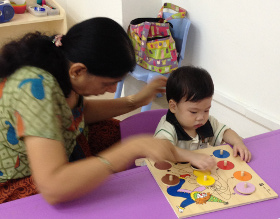
Today, it’s been 3 months since Sam started his playgroup and I am proud to share that Sam loves school! Now, he will tell me about what he did in school (through his babbles), runs to school and says goodbye to me happily. There will also be times where he will want to stay back longer so that he can play with his friends.
Looking back, it has been the best decision ever for me to persist in our decision to put Sam in school. Seeing how he totally enjoys his school and the growth in his learning and language skills has brought me much joy as a parent. Hang in there parents, and know that you will soon see the fruits of your hard labour!
So how did Sam and I manage to get to where we are today? Read Part 2: 10 Ways To Help Your Toddler Adjust To School!
Photos (except first photo) and text by Yvonne Chee.
References:
The Child Study Center, An Interview with David Steinberg, M. D., is Director, Infancy and Early Childhood Program, NYU Child Study Center, and Assistant Professor of Clinical Psychiatry, NYU School of Medicine, aboutourkids.org.
* * * * *
Looking to reach over 100,000 parents in Singapore? Let us amplify your message! Drop your contact details here, and we’ll reach out to you.
Discover exciting family-friendly events and places to explore! Join our Telegram channel for curated parenting recommendations.












